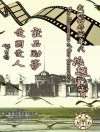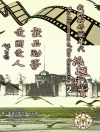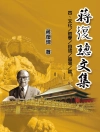Stuart Dodgson Collingwood’s ‘The Life and Letters of Lewis Carroll’ is a captivating and controversial biography that delves into the scandalous life of the renowned author Lewis Carroll, famously known for writing ‘Alice’s Adventures in Wonderland’. Collingwood, who was Carroll’s nephew, provides a unique and intimate perspective on the enigmatic figure, revealing aspects of his personality and relationships that have long been the subject of speculation. The book is meticulously researched and offers a mix of personal letters, anecdotes, and historical context to paint a vivid portrait of Carroll’s life and work. Collingwood’s writing style is insightful and engaging, making this biography a must-read for fans of Lewis Carroll and literary enthusiasts interested in the Victorian era. The book sheds new light on Carroll’s motivations, inspirations, and the controversies surrounding his relationships with young girls, inviting readers to reconsider their perceptions of this iconic author.
Over de auteur
Stuart Dodgson Collingwood (1870–1937) was an English clergyman, schoolmaster, and author, most notably recognized for his biographical work on his uncle, Charles Lutwidge Dodgson, better known by his pen name, Lewis Carroll. Collingwood’s tribute to the legendary writer of ‘Alice’s Adventures in Wonderland’ is encapsulated in his publication ‘The Life and Letters of Lewis Carroll: The Original Scandalous Biography by Carroll’s nephew’ (1898). This comprehensive biography, compiled from family documents and correspondence, provides an intimate portrait of the mathematician, photographer, and writer, giving unique insights into Carroll’s personal and professional life.
Collingwood’s literary style is marked by a Victorian earnestness, filled with detail and a respectful yet candid examination of his subject’s life. He adeptly paints a picture of Lewis Carroll as a multidimensional figure, juxtaposing the author’s literary achievements with the complexities of his personality. While scholarly in his approach, Collingwood sometimes draws criticism for the perceived sanitization of certain aspects of Carroll’s life, which has later prompted further scrutiny and alternative interpretations by modern scholars. Nevertheless, Collingwood’s biography remains a significant early work in the realm of Carrollian studies, paving the way for future research and analysis of the Victorian author’s life and legacy.












